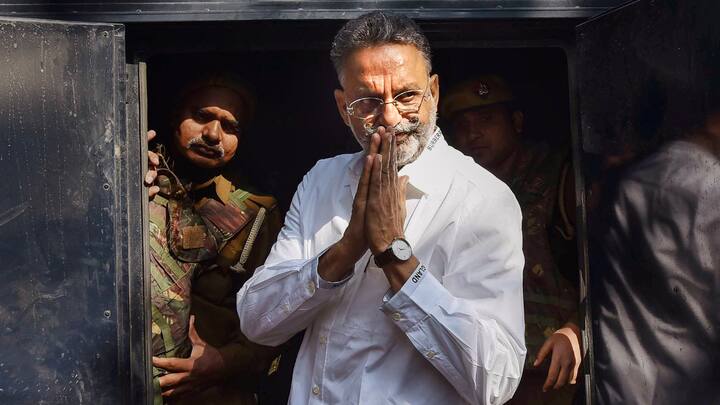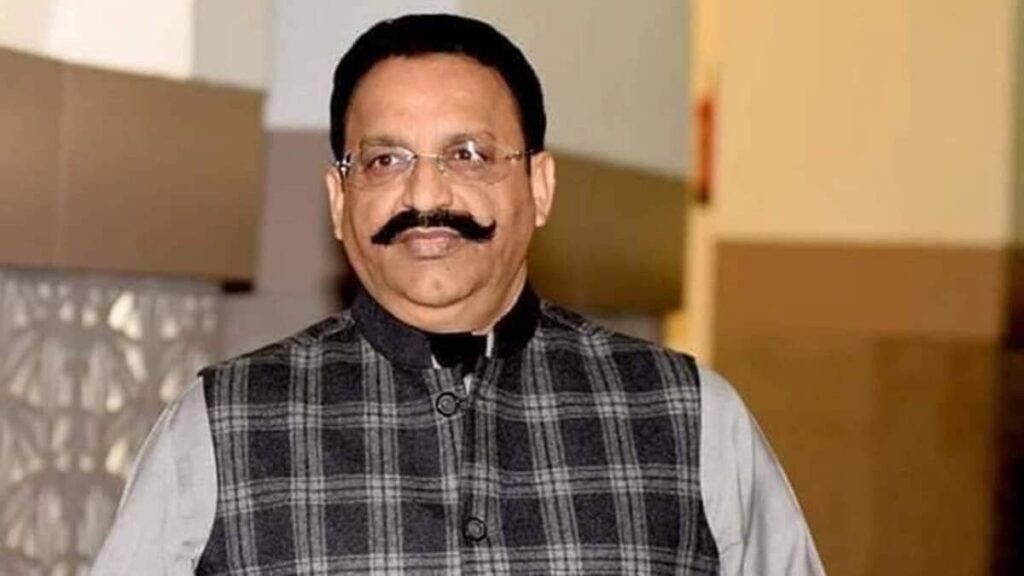Mukhtar Ansari, a prominent figure known for his dual roles as a gangster and a politician, has been sentenced to life imprisonment in a 36-year-old case involving fake gun licenses. The verdict, delivered by a special CBI court, marks a significant development in the legal saga surrounding Ansari, whose criminal activities and political ambitions have long been a subject of scrutiny and controversy.
The case dates back to 1986 when Ansari, along with several associates, allegedly procured fake gun licenses in order to expand his criminal empire and exert influence in the region. Over the years, Ansari’s involvement in various criminal activities, including extortion, land grabbing, and organized crime, has earned him notoriety and made him a symbol of lawlessness in Uttar Pradesh.

Source: ABP Live- ABP News
Despite his criminal background, Ansari ventured into politics and became a Member of the Legislative Assembly (MLA) from the Mau constituency in Uttar Pradesh. His ability to wield political power while facing numerous criminal charges has raised questions about the nexus between crime and politics in India.
SOURCE:- NDTV
The sentencing of Ansari to life imprisonment sends a strong message about the commitment of the Indian judiciary to uphold the rule of law and hold individuals accountable for their actions, regardless of their stature or political connections. It also serves as a reminder of the importance of judicial independence in ensuring justice and maintaining public trust in the legal system.
The case against Ansari highlights the challenges associated with combating organized crime and political corruption in India. The intertwining of criminal elements with the political establishment poses a significant obstacle to the country’s democratic governance and undermines efforts to promote transparency, accountability, and the rule of law.
Furthermore, Ansari’s conviction underscores the need for comprehensive reforms in India’s criminal justice system, including the timely disposal of cases, the protection of witnesses, and the prevention of political interference in legal proceedings. It also underscores the importance of effective coordination between law enforcement agencies and the judiciary to combat organized crime and uphold the principles of justice and equality before the law.
As Ansari begins his life sentence, the case serves as a cautionary tale about the perils of criminality and the consequences of abusing political power for personal gain. It also provides an opportunity for introspection and reform within India’s political and judicial institutions to ensure that individuals like Ansari are held accountable for their actions and that the rule of law prevails in the country.
Share your views in the comments

